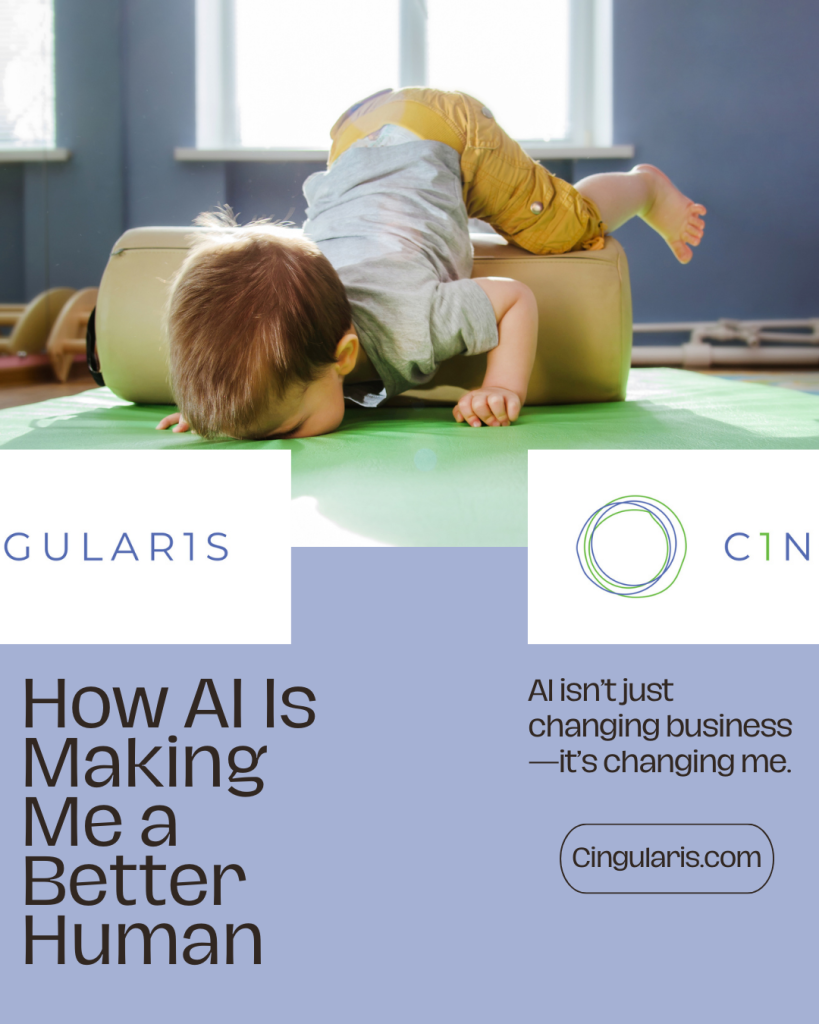AI isn’t just changing the way I do business—it’s changing the way I behave. As an AI consultant, I help companies integrate artificial intelligence into their operations. But in the process, AI has been helping me, too. Not just professionally, but personally.
Working with AI has forced me to rethink communication, learning, and authenticity. It’s made me a better problem solver, a better writer, and, surprisingly, a better human.
Separating Facts from Feelings
AI doesn’t take things personally. It processes feedback, adjusts, and moves forward. Simple, right? But as humans, we tend to react. We read too much into emails, overanalyze comments, and let criticism shake our confidence.
When I tell AI to redo something I think it whiffed, it just does it. No hurt feelings. I would take that stuff personally!
AI has taught me to (try to) approach feedback with objectivity. When a client suggests a change or points out an issue, I don’t have to hear it as something personal. Instead, I see an opportunity to improve—just like AI does with new data.
At the same time, AI actually demonstrates some EQ (Emotional Intelligence) and empathy. I once asked it for suggestions of tag lines for my one-man show about Grief, and it took the time to hear me and demonstrate sympathy and understand my situation. It blew me away.
The Power of Continuous Learning
AI is never done learning. Every interaction, every piece of data refines its understanding. Businesses that use AI effectively don’t just implement it once and move on—they constantly train and adjust it.
The same applies to personal and professional growth. If AI can improve based on real-world feedback, why wouldn’t I? Whether it’s refining my consulting approach, learning a new skill, or rethinking an outdated assumption, I’ve realized that growth isn’t a one-time event—it’s an ongoing process.
Training Matters More Than Talent
An AI model is only as good as its training. You wouldn’t expect an untrained AI to perform flawlessly, so why do we hold ourselves to that standard?
Running a business—or navigating life—without proper training and learning is like expecting an AI chatbot to operate without data. Whether it’s investing in leadership skills, refining marketing strategies, or simply getting better at what I do, I know that success is about the process – learn, adust, do it again.
Truth Over Fluff
AI is blunt. It doesn’t embellish. It doesn’t sugarcoat. And, in many cases, that’s a good thing. Now, in all fairness, I’ve been known to be pretty straightforward, even a little too blunt at times. I’m working on it!
But watching AI work reinforces the idea that clear, honest communication is far more effective than trying to say what someone wants to hear. Business leaders don’t have time for vague promises or marketing fluff—they need real solutions. The more direct I am, the more trust I build.
The Importance of Uniqueness
AI models are trained on vast amounts of data, but the best ones – ones that are customized – stand out because they offer something different. The same is true for businesses and individuals.
The most successful companies don’t try to blend in. They carve out a niche, embrace what makes them different, and lean into it. Working with AI has reinforced that being unique isn’t just an advantage—it’s essential. Think of how many “rock” bands made it big, but don’t really fit the “rock” genre – Queen, The Doors, Elton John.
Lessons for Business and Beyond
Here’s what AI has taught me that applies to both business and life:
- Feedback isn’t personal; it’s an opportunity to improve.
- Learning never stops—adaptation is key.
- Training is the foundation of success.
- Clear, honest communication builds trust.
- Authenticity is a competitive advantage.
These lessons have shaped how I approach AI consulting, leadership, and everyday interactions. If AI can evolve, improve, and operate with clarity, so can we.
Cingularis: Helping companies that Do Good do even Good-er.


